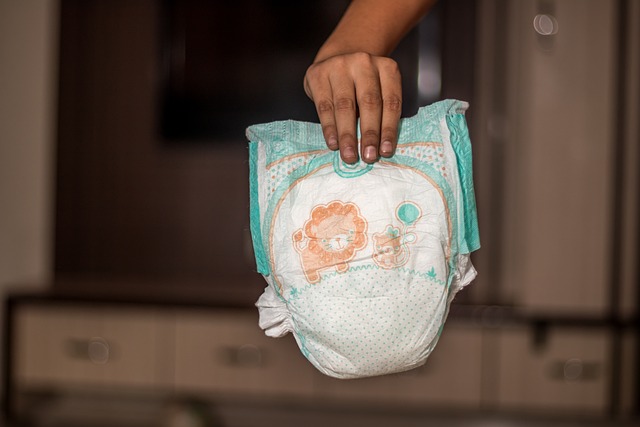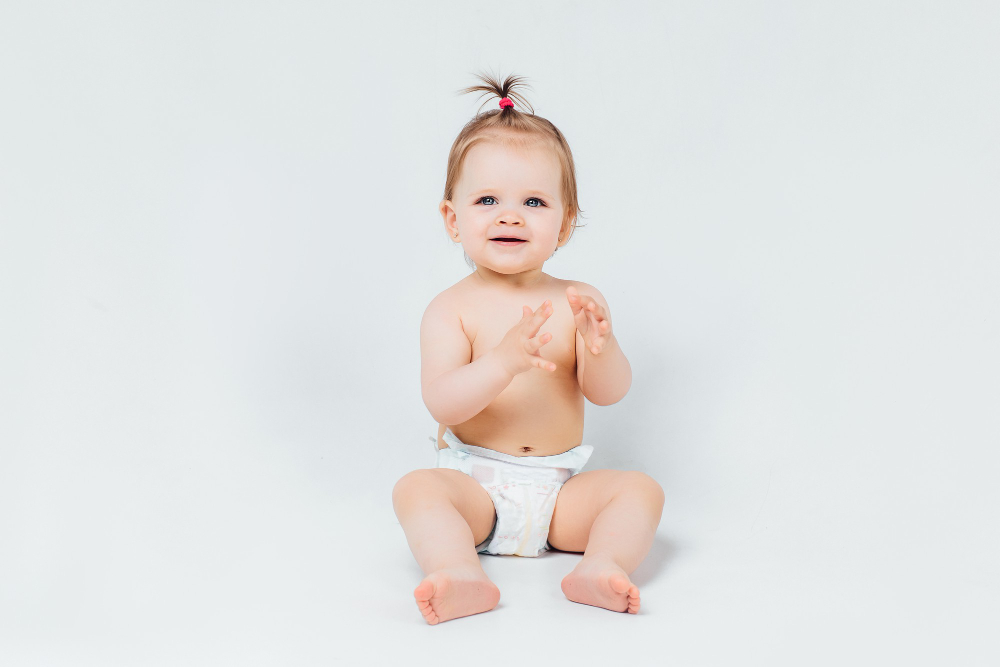When my daughter, Anika, was born, the joy of welcoming her into our lives was accompanied by a flood of advice from well-meaning relatives. Amidst the sea of suggestions, one topic sparked heated debates: the use of diapers. Some relatives were adamant that traditional cloth was best, while others encouraged the convenience of disposable diapers. As a new mother, I was caught in a dilemma, unsure of the best choice for Anika’s health and comfort.
This blog aims to provide clarity on the safety and suitability of diaper use for newborns, drawing on expert opinions from organizations like the American Academy of Pediatrics (AAP) and offering practical advice for new parents.
1. Understanding Diaper Use: Benefits and Concerns
Benefits of Diaper Use:
- Convenience: Disposable diapers are easy to use, especially for busy parents, as they eliminate the need for frequent washing.
- Absorbency: High-quality diapers are designed to keep the baby’s skin dry, reducing the risk of diaper rash.
- Travel-Friendly: Diapers are convenient for outings and travel, ensuring the baby stays comfortable and dry.
Concerns About Diaper Use:
- Diaper Rash: Prolonged exposure to wetness and friction can cause diaper rash, a common concern among parents.
- Environmental Impact: Disposable diapers contribute to landfill waste, raising concerns about their environmental footprint.
- Cost: The ongoing expense of disposable diapers can add up, making cloth diapers a more economical option for some families.
2. Expert Opinions on Diaper Use
American Academy of Pediatrics (AAP): The AAP acknowledges the convenience of disposable diapers but emphasizes the importance of proper diapering practices to prevent skin irritation and diaper rash. They recommend frequent diaper changes, using hypoallergenic wipes, and applying barrier creams to protect the baby’s skin.
According to the AAP, “Disposable diapers are a safe and convenient option for parents. Ensuring regular diaper changes and proper skin care can help prevent diaper rash and keep your baby comfortable” .
National Institute of Child Health and Human Development (NICHD): The NICHD supports the use of both disposable and cloth diapers, highlighting that the choice ultimately depends on parental preference and lifestyle. They stress the importance of keeping the baby’s skin dry and clean, regardless of the type of diaper used .
World Health Organization (WHO): The WHO does not have a specific stance on diaper types but emphasizes the importance of hygiene in infant care. Regular diaper changes and cleaning are crucial to preventing infections and ensuring overall health .
Mayo Clinic: The Mayo Clinic provides comprehensive guidelines on diapering, recommending parents to choose diapers that fit well, are absorbent, and are changed frequently. They note that both disposable and cloth diapers can be safe when used correctly .
3. When to Start Using Diapers

Newborn Stage (0-3 Months): Diapers can be used from birth. Newborns have delicate skin and frequent bowel movements, making it essential to change diapers often. Look for diapers designed specifically for newborns, which are softer and more gentle on the skin.
Infant Stage (3-12 Months): As your baby grows, their skin becomes less sensitive, and diaper changes may become less frequent. However, maintaining regular changes is crucial to prevent diaper rash and ensure comfort.
4. Best Practices for Diaper Use
Frequent Changes: Changing diapers every 2-3 hours, or immediately after a bowel movement, helps prevent diaper rash and keeps the baby comfortable.
Choosing the Right Size: Ensure the diaper fits well without being too tight or too loose. A good fit prevents leaks and reduces the risk of skin irritation.
Skin Care: Clean the diaper area thoroughly with water or hypoallergenic wipes during each change. Apply a thin layer of diaper cream to protect the skin from moisture.
Breathable Diapers: Opt for diapers with breathable materials that allow air circulation, reducing the likelihood of diaper rash.
5. Addressing Common Concerns
Diaper Rash Prevention: To prevent diaper rash, ensure frequent diaper changes, use barrier creams, and allow the baby’s skin to air out occasionally. If a rash occurs, use medicated creams as recommended by a pediatrician.
Environmental Impact: Consider using eco-friendly diaper brands that offer biodegradable options. Alternatively, using cloth diapers part-time can reduce the environmental footprint.
Cost Management: To manage costs, buy diapers in bulk during sales, and consider using a combination of cloth and disposable diapers to balance convenience and savings.
6. Recommended Indian Diaper Brands
Pampers: Known for its softness and absorbency, Pampers offers a range of diapers designed to keep the baby’s skin dry and comfortable. Their “Pampers Premium Care” line is especially popular for its gentle materials.
Huggies: Huggies diapers are recognized for their leak-proof design and excellent absorbency. The “Huggies Wonder Pants” range provides a snug fit and ensures the baby’s comfort.
MamyPoko Pants: MamyPoko Pants are known for their high absorbency and comfortable fit. Their “Extra Absorb” range is suitable for overnight use, keeping the baby dry for longer periods.
Read more:
How to Dispose of Used Diapers Without Harming the Environment: A Guide for New Moms
Diaper Bag Essentials: Best Guide to Every Mother
10 Types of New Born Baby Clothes Every Parent Must Know
Best Oils for Baby Massage | Oils to Avoid for Baby Massage
Best Baby Boy Light and Sound Shoes
Conclusion:
As a new parent, navigating the world of diapering can be overwhelming, especially with differing opinions and advice. However, understanding the benefits, concerns, and best practices for diaper use can help you make an informed decision for your baby’s well-being. Whether you choose disposable or cloth diapers, the key is to ensure your baby stays dry, clean, and comfortable.
Diapering is a personal choice, and what works for one family may not work for another. By staying informed and following expert recommendations, you can confidently provide the best care for your little one, just as I did for my daughter Anika.

